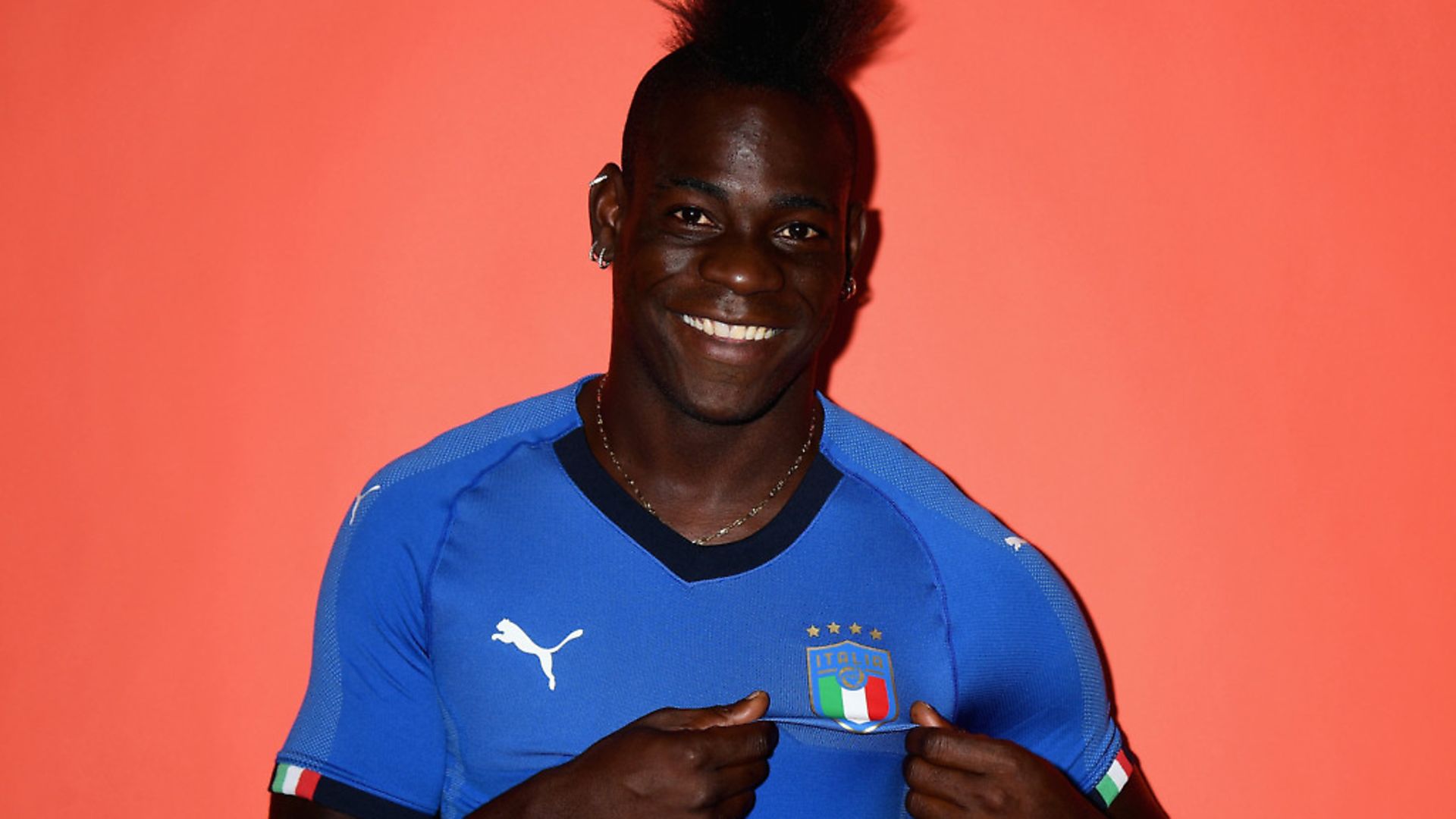
What does it mean to be Italian? Even today, many in the country think it still comes down to skin colour, says PATRICK SAWER.

Nearly a quarter of a century ago a young woman’s victory in her national beauty pageant sparked what Italians like to call “una grande polemica” – a huge row.
To British eyes it was difficult to comprehend quite what the fuss was about. Denny Méndez was beautiful, elegant, intelligent and, to the nine million Italians who voted for her in a television poll, a deserving winner of Miss Italia 1996.
There was just one problem for many others who watched the 18-year-old’s coronation, including two of the contest’s judges – and it certainly wasn’t the notion of a parade of women objectified for the male gaze. The problem was simple: Méndez was black.
The victory of the teenager, who was born in the Dominican Republic but raised from a very early age in the Tuscan town of Montecatini Terme by her Dominican mother and Italian stepfather, was taken to have prompted fundamental questions as to what it was to be Italian, and how closely the national identity was defined by race.
The row over the 1996 Miss Italia was extraordinary for any British tourists who, like me, happened to read the newspapers or watch the nightly news bulletins. I was there on holiday at the time with my recently married wife, showing her my ancestral homeland, so to speak, and staying with one of my mother’s Sicilian cousins.
We watched, fascinated and bemused, as the polemica occupied hours of debate on Italy’s nightly talk shows, with politicians weighing in from left and right.
It was an early experience of the culture wars for many Italians, whose country was some way behind Britain in taking its first, tentative, steps towards a future as a multicultural society.
Italy had historically exported millions of its impoverished people around the globe as economic migrants – among them members of my own family – and had only just begun to attract immigrants to its own shores in any significant numbers. The presence of BAME people in most Italian towns and even the major cities back then was negligible and there were certainly few black people in the public eye.
For many Italians in 1996 their only experience of a person of colour were the African beach vendors, hawking towels, sun lotion and fresh coconut, with their cries of “vu cumpra?” (“do you want to buy?”), or television reports of exploited tomato pickers in the southern regions of Puglia and Calabria.
Which may explain why one Miss Italia official felt able to state about Méndez: “A black girl can’t be Miss Italy. It’s not in the rules.” Méndez herself retained her composure and dignity, stating simply at the time: “I know I don’t represent Italian beauty, but they elected me,” she said, “so what am I supposed to do – refuse?”
Two of the judges were suspended for their comments and the polemica eventually passed over. But the issue of race and Italian identity has never gone away.
The Méndez affair came 14 years before Palermo-born Mario Balotelli – who is of Ghanaian origin and the adopted son of Silvia, the Jewish daughter of Holocaust survivors, and Francesco Balotelli – first pulled on the shirt of the Azzurri and become the most high profile ethnic minority player to represent Italy on the international sporting stage.
Yet despite his charisma and goals for the national side he has all too frequently been greeted with racist abuse from Italian fans and chants from the stands of “There’s no such thing as a black Italian”. Two months ago Balotelli threatened to walk off the pitch after being subjected to racist abuse by Hellas Verona fans, only staying on following the entreaties of his Brescia teammates.
His experiences on the pitch show that the concept of a black Italian remains as much an affront to some as it was at the time of the Méndez polemica.
What has changed since then, however, is the visibility of ethnic minorities in the country who are challenging this racist concept. Latest figures show that in 2016 Italy was home to about five million foreign residents – some 8% of the total population – including 97,000 children born in the peninsula to foreign nationals.
While Balotelli is the most high profile – and certainly best known in the UK – ethnic minority sports star in the country, others have come to the fore in recent years, including: Daisy Osakue, a discus thrower (who was subjected to a racist attack in her home city of Turin in 2018); Sara Gama, the women’s Azzurri defender born in Trieste of mixed Italian and Congolese descent, and the sprinter Raphaela Boaheng Lukudo, last year’s Mediterranean Games 4x400m relay gold medallist, who was born in Aversa of Sudanese parents.
Away from sport there are Italians of north and sub-Saharan African descent in all walks of life – and not just from countries which once formed part of Italy’s post-unification imperial ambitions – who are busy helping to shape contemporary Italy.
They include Luca Guadagnino, director of the internationally acclaimed Call Me By Your Name, born in Palermo to an Algerian mother and Italian father; Milanese-born singer Mahmood, who came second in this year’s Eurovision Song Contest, and has a Sardinian mother and Egyptian father; the writer Alessandro Ghebreigziabiher, born in Naples of an Eritrean father and an Italian mother; and Cécile Kyenge, the Congo-born former minister for integration who settled in Italy as a student in 1983, and who has campaigned for a law granting citizenship to children of migrants born on Italian soil.
Kyenge was Italy’s first black minister and has spoken about the abuse she encountered in politics. One Italian MEP called her ministerial appointment “a sh**ty choice” by a “bongo-bongo” government, while a member of the country’s senate said she reminded him “of the features of an orangutan”.
The recent revival of Italy’s far right, and the populist and anti-migrant jibes and policies of recently ousted interior minister Matteo Salvini, means that such prejudice remains a fact of daily Italian life and new generations of black and ethnic minority people who were born on the peninsula, or arrived as children, are still having to put up with questions over whether their skin colour means they can be truly Italian.
The young Italian writer Oiza Obasuyi, who is black, has written movingly of how this question has no meaning for her, as, being born in Italy, she naturally considers herself Italian.
Yet many of her fellow citizens continue to question her Italianness simply because of her skin colour, just as they once did of Méndez. Obasuyi says she that while she is naturally interested in her mother’s Nigerian culture and feels a great affinity towards it, that does not make her Nigerian.
How could it, she asks, when she has always assumed herself to be an Italian from Ancona. In fact the question didn’t even enter her head as a child until it was raised by others.
So, all factors considered, have things improved for BAME Italians since 1996? Perhaps the changing reality on the ground is helping to create greater space within which people like Obasuyi can demand acceptance for what they are. Black and Italian.
And Miss Italia 1996 herself? She went on to enter the following year’s Miss Universe contest, representing Italy of course, before establishing herself as an actress and TV personality with a small role in Ocean’s Twelve and recently appearing in films alongside John Travolta and Morgan Freeman.
The wounding criticism of her victory in 1996 still hurts, but she remains as generous and forgiving as she was then, telling Italian Vanity Fair in 2019: “Italy is a country of welcoming, generous and attentive people. Italians struggle to accept change, but they’re not racists. There’s a lot of resistance to change, but change is inevitable.”
Black and ethnic minority Italians? É come no (you bet)!
– Patrick Sawer is a senior news reporter for the Daily and Sunday Telegraph










